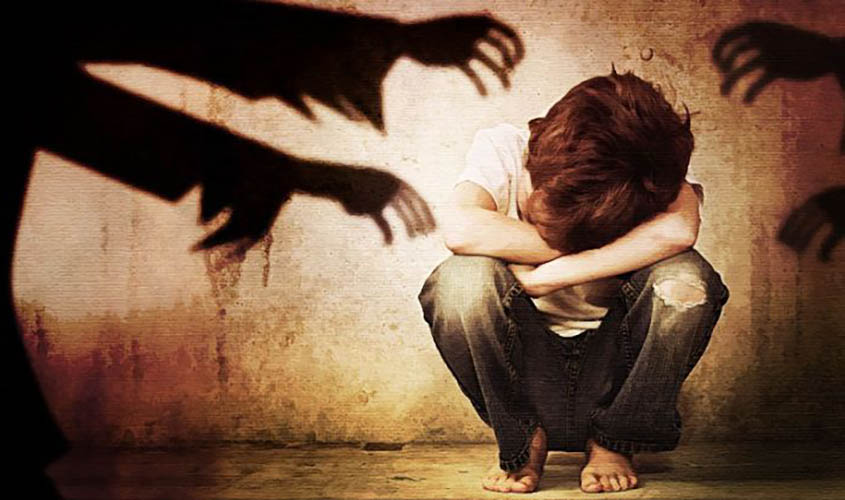NCRB data shows child rape cases increased by 82% in 2015-16.
There has been a rise in the cases registered under Protection of Children from Sexual Offences (POCSO) Act in the recent years but it is heartening to know that awareness about the law enacted in 2012 has also increased among the parents in particular and in the society in general. In fact, the increased awareness has helped register more and more such cases which were hitherto going unreported.
A study conducted by Childline India Foundation, a project of Union Ministry of Women and Child Development, in 2007 revealed that the number of boys being sexually abused is equal to that of girls though registration of number of cases related to boys is much lower than the actual incidents of sexual harassment of young lads taking place.
Jyoti Mathur, Director of Training at Bachpan Bachao Andolan – an initiative started by child rights activist and Nobel laureate Kailash Satyarthi, said that the there are not too many cases pertaining to boys that are registered. “Out of 69% children physically abused in 13 sample states, 54.68% were boys. Hence, the findings of the study became the basis of formulation of POCSO Act,” she added.
POCSO Act was passed on 19 June 2012. It was introduced to protect children from offences of sexual assault, sexual harassment and pornography and provide for establishment of Special Courts for trial of such offences. The Act caters to both girls and boys below the age of 18.
The data published by National Crime Records Bureau (NCRB) in 2016 showed that the incidents of rape of children have increased by over 82% compared to 2015. However, Mathur explained that this spike is because the numbers of cases registered have increased due to better awareness.
“People are now aware about POCSO Act, which is the reason for the increasing number of case being registered. Because under the Act, there is a provision in it that anybody who knows that a crime has been committed or is likely to be committed, it is mandatory for that person to report and if you don’t, then there is punishment regarding that as well,” she added.
According to NCRB data, while in 2015, 10,854 cases of rape under Section 376 of the IPC and under Sections 4 and 6 of POCSO Act were registered across the country, 2016 saw 19,765 such cases being listed. The NCRB figures, however, reflect only the number of crimes registered by the police.
Sexual offence is a terrible and horrific experience for any person, but for a child victim, it snatches away his or her childhood, which is why there are strict rules in place for such offences committed against children.
Mathur said sexual offences committed against children should be handled with utmost care. “For instance, some child is abused and she or he goes to a doctor for medical examination, where it is revealed that are signs of sexual abuse, then the doctor has to report to the police,” she said.
Speaking to The Sunday Guardian, noted rights activist Sujata Nayak, who works with UN-affiliated National Human Rights Council of India (NHRCI), mentioned that there is a child helpline number ‘1098’, which most people are unaware about.
She explained that as per law, the statement of the child has to be recorded by the police not necessarily at the police station but at a place wherever the child is comfortable.
A few things that the law grants and should be kept in mind while handling such cases are: the police should not be in uniform, and preferably a lady police officer should be present during carrying out investigations. The officer should not be below the rank of assistant sub-inspector (ASI) of police, Nayak added.
Mathur emphasised that the law clearly states that the identity of the child “should not be revealed under any circumstance”. Moreover, a timeline has been prescribed there which states that the police must have to record the evidence within 30 days and the court has to complete the trial within a year. “It doesn’t happen often though,” she rued.
After the registration of the case, the child is provided counselors by Child Welfare Committee CWC). As per the provisions of the Juvenile Justice (Care and Protection of Children) Act 2000, all the state governments are required to establish a CWC or two in every district.
However, according to sources, most of the CWCs fail to provide competent counselors to the victims and their families.
The CWC authorities in Delhi and Noida, however, chose not to respond when The Sunday Guardian tried to reach them.
Mathur continued that a law related to the issue is already in place but awareness about is still low. Stating that schools should focus on sex education, she said, “There is no sex education in our schools; the reproduction chapters are usually skipped. So, we need to include this, along with POCSO Act, child labour and child marriage, in school syllabi.”
Nayak asserted that schools should come up with guidelines to create awareness about things like “good and bad touch”. The children should be educated regarding “uncomfortable situations” and an environment should be created where he or she can easily approach authorities regarding any misconduct.
According to information given by the Minister of State for Women and Child Development to the Rajya Sabha in February 2018, a total of 1,04,976 cases were registered under POCSO Act from 2014 to 2016. However, numerous cases go unregistered due to lack of awareness or fear of social stigma.

